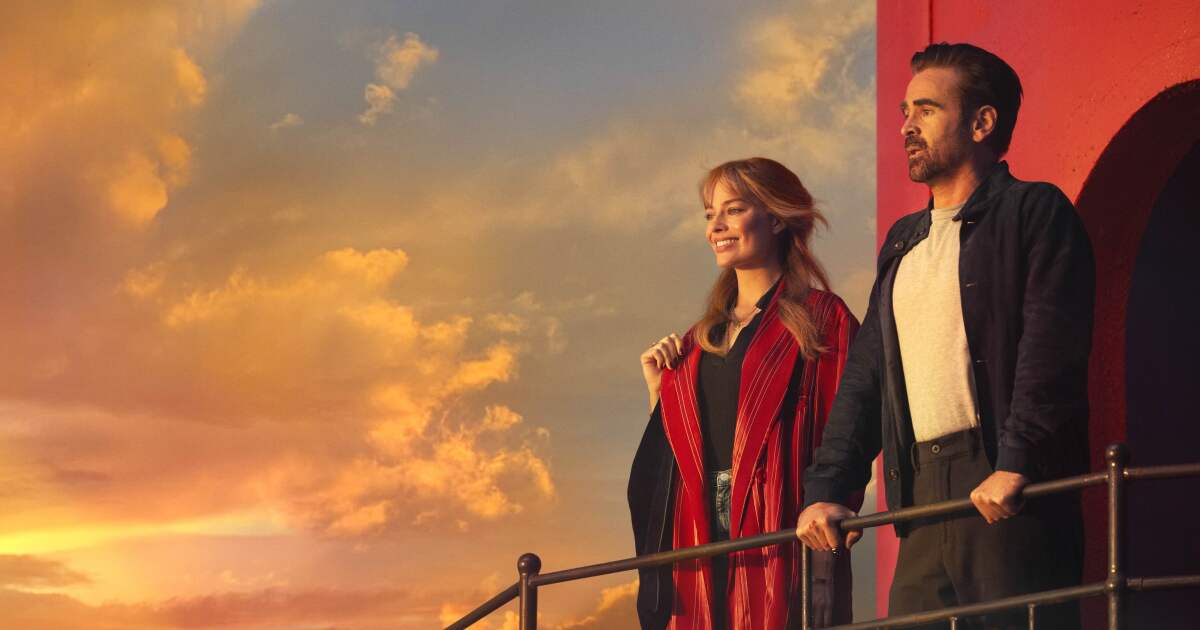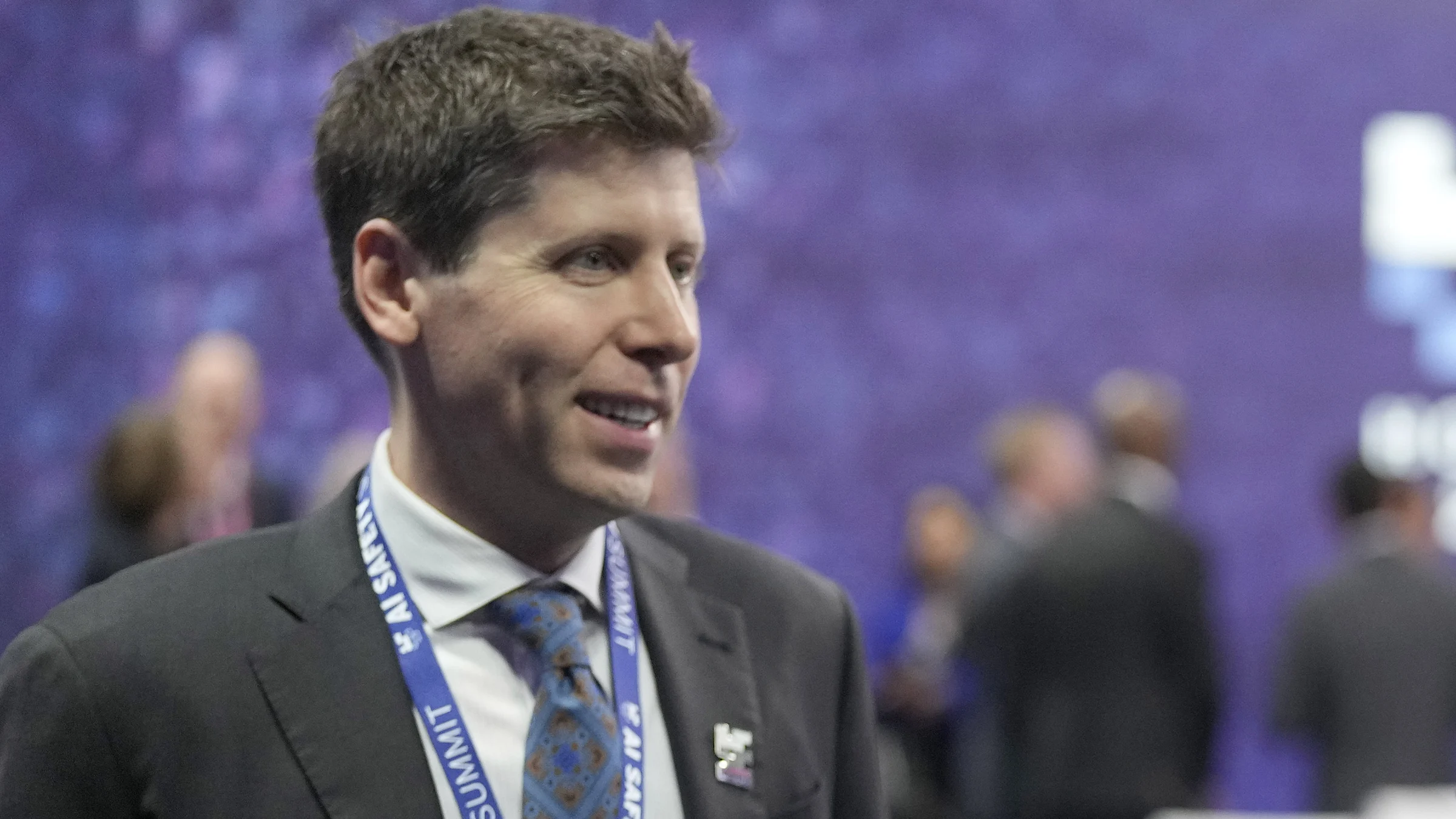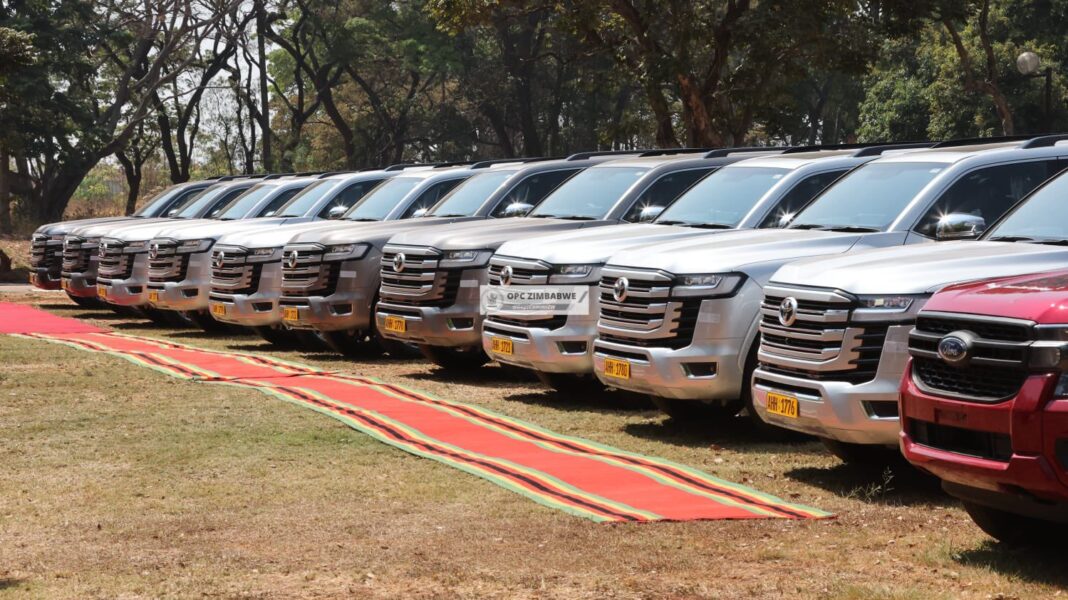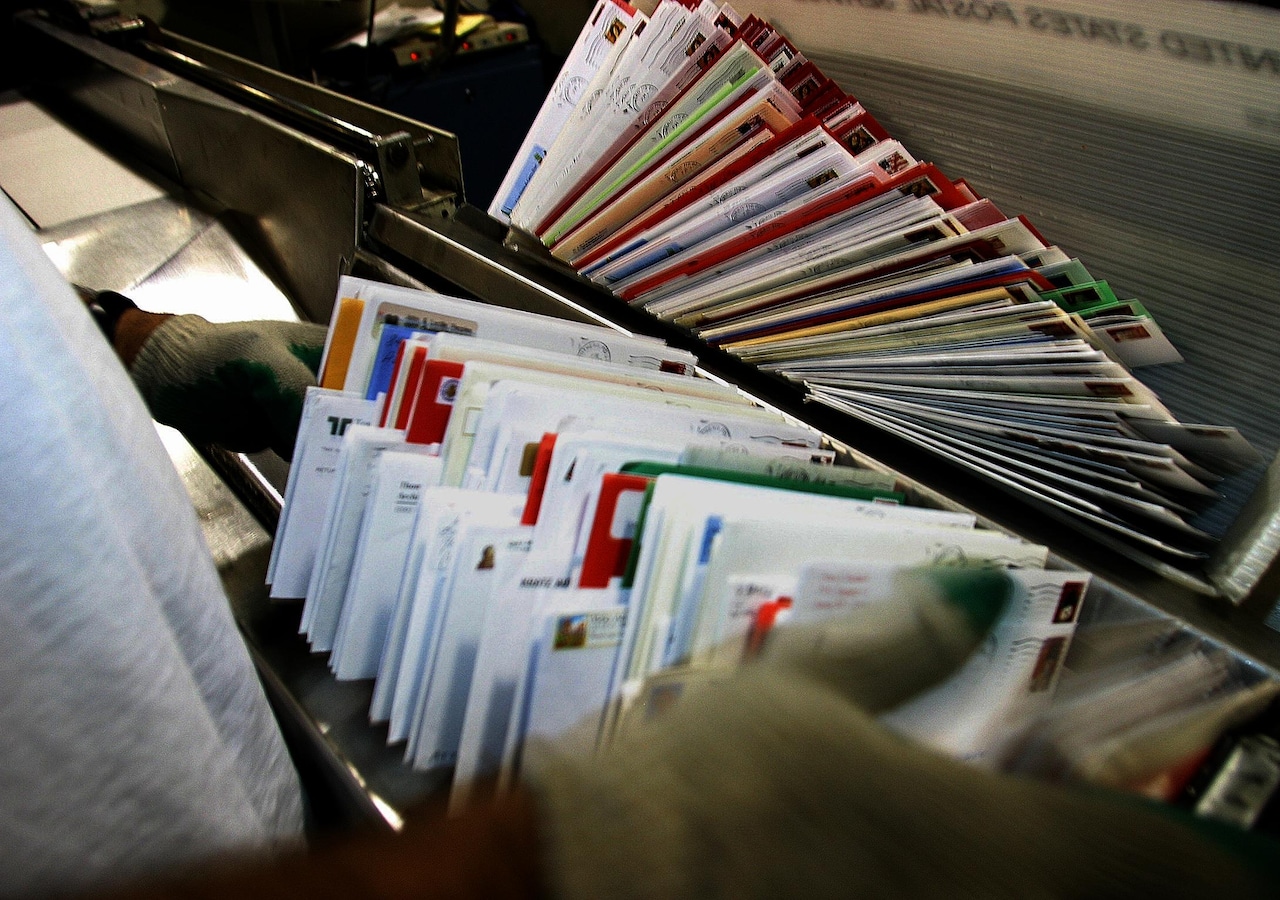
“A Big Bold Beautiful Journey” is a surreal, color-saturated quest about healing childhood scars in order to have healthy adult relationships. It’s a corny road trip.
Directed by the monomonikered Kogonada (“After Yang”) from a script by Seth Reiss, this sputtering high-concept love story is about two singletons, Sarah (Margot Robbie) and David (Colin Farrell), who meet at a wedding and carpool home in a mystical rental sedan guided by a bossy GPS (voiced by Jodie Turner-Smith) that forces them to explore why she cheats and he swings from hot to cold. Their meandering, inevitable path to romance pit-stops at magical portals — actual doors standing alone on the shoulder — that transport them to each other’s pivotal memories, say the hospital where Sarah’s mother died or the auditorium where a 15-year-old David first got his heart broken. It’s not time travel exactly; they can’t change their history. Consider it Waze-navigated regression therapy.
Who wouldn’t be curious to see Ebenezer Scrooge take a Tinder date to meet his girlfriends past? It’s adorable to see Farrell relive starring in a high school class musical, leaping, twisting and grinning through the dorky choreography. I even liked the tidy coincidences that lead David to rent a 1994 Saturn from two pushy desk clerks (Kevin Kline and Phoebe Waller-Bridge) who seem to know more about him than they’re saying. As Waller-Bridge says in a testy German accent announcing the film’s theme, “Sometimes we have to perform to get to the truth.” (Or in David’s case, belt a few verses from “How to Succeed in Business Without Really Trying.”)
Like Kogonada, I believe that artifice is a useful tool to dig up honesty. But a script with this much contrivance only works if it’s delivered with snap and confidence. “A Big Bold Beautiful Journey” is sticky sweet and sludgy and so cloyingly aesthetic that the roadkill bleeds ropes of twee entrails. While the film has a techno-fantasy bent, Kogonada’s style is too self-consciously bespoke, the cinematic equivalent of a hipster carrying around their old iPod in a hand-carved wooden case. It’s the most millennial-chic movie since “Garden State” — even before it gets to a montage set to the Bright Eyes’ hit “First Day of My Life,” a ballad released in 2005 that newlyweds have been swaying to at receptions with candles in mason jars ever since.
Kogonada earned the industry’s attention as a cineaste who spliced together video supercuts illustrating the techniques of auteurs like Ozu, Kubrick and Wes Anderson. Freed to make his own movies, he still comes across a tad professorial. His breakout debut, 2017’s “Columbus,” had a similarly stagy proscenium feel with two platonic strangers, a bright teenager (Haley Lu Richardson) and a glum book translator (John Cho) rattling around an Indiana college town talking about architecture. Here, say in a scene that takes place in a quiet room with a ticking clock, you’re thinking not only of the nudge that time is precious but of Kogonada himself elbowing you that this is how a director gets the idea across.
For whatever reason, the usually vibrant Margot Robbie intones her lines like she, too, is trapped in a school play. It’s an oddly false performance that comes across even stiffer as she’s been shellacked with thick makeup and wig-like hair. Maybe the intention was that Sarah, an avowed man-eater, uses her beauty as armor. Still, it’s a bit much when their car briefly runs off the road and she walks away from the crash with immaculate locks.
Perhaps for having acted before in Kogonada’s 2021 AI weepie “After Yang,” Farrell fares better. He knows to balance the arch atmosphere by adding emotion to his silences. Early on, there’s a wedding scene when David thinks he’s fumbled it with Sarah and he stands on the sidelines of the dance floor watching her slither up to some other guy. There’s a look in his eye like a hungry mutt staring at a butcher shop window: pathetic and moony and flummoxed by how to get what he wants.
We come to the film with so much preexisting affection for Farrell and Robbie that it’s a shock when their characters kiss and we realize they’ve got no chemistry. It’s not entirely their fault. Instead of flirting, they’re forever having to blurt out how they feel about their mom and dad. Not even Farrell, one of my favorite actors, can pull off David earnestly telling Sarah, “I see you.”
One of the good tweaks the script has undergone since landing on the 2020 Blacklist is that David and Sarah now call each other out when their monologues sound too rehearsed, playfully accusing each other of workshopping their angst on past exes. We’re grateful for the acknowledgment of the stilted dialogue. Plus, it teases the beat where they wind up on a double date with two former lovers.
Their best conversations are with other people: Farrell with Hamish Linklater, playing David’s nervous father who wants to protect his son from the world, and Robbie with Lily Rabe as Sarah’s overwhelmed single mother who can’t explain her own terrible taste in men. David and Sarah don’t want to freak out their parents, so they have to act like nothing weird is going on, allowing these scenes to have interesting, unexplored levels.



